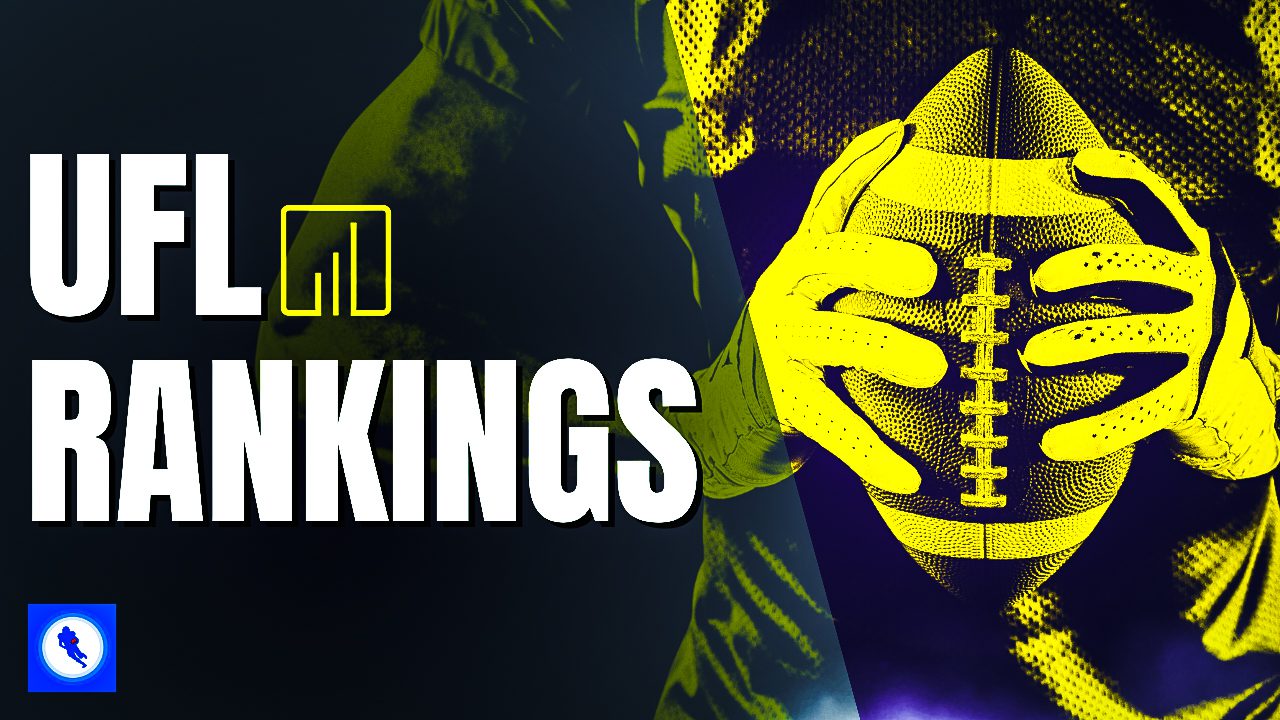Phil Clark looks at Minnesota Vikings wide receiver Adam Thielen and his dynasty value heading into the 2020 fantasy football season. Is he a WR to buy, sell, or hold?
Many of you have already begun planning and building your 2020 rosters. This includes best ball owners who have assembled teams in that popular format. A number of owners in redraft leagues are inspecting the early rankings, while those of you who are involved in dynasty leagues have continued your process of relentless roster evaluation.
As the ever-present temptation to tweak your dynasty rosters remains intact, you must determine whether to proceed with the current components of your team or make modifications to your assortment of players. The team at RotoBaller is aware of your ongoing management process and is building an arsenal of material that will boost your efforts in constructing your teams.
Our growing collection of dynasty price check articles is designed to help your decision-making process when determining the current value of your players. That includes this breakdown of Adam Thielen, as he enters his seventh season. It is created with the premise that you are participating in a 12-team league with 0.5 PPR scoring, along with roster requirements that include starting 1 quarterback.
Be sure to check all of our fantasy football rankings for 2025:- 2025 fantasy football rankings (redraft)
- Dynasty fantasy football rankings
- 2025 NFL rookie fantasy football rankings
- Best ball fantasy football rankings
- Quarterback fantasy football rankings
- Running back fantasy football rankings
- Wide receiver fantasy football rankings
- Tight end fantasy football rankings
Profile
Team: Minnesota Vikings
College: Minnesota State-Mankato
Age: 29
Height/Weight: 6'2", 200 pounds
Undrafted Free Agent: 2013
From Practice Squad to Pro Bowl
Thielen’s pathway to relevance was not readily accessible when he signed with Minnesota in 2013. He remained on the practice squad throughout that season, before elevating to special teams on the 53-man roster during his second year. After accumulating just 31 targets, 20 receptions and 281 yards in 2014-2015, Thielen’s usage and production rose substantially during 2016 (92 targets/69 receptions/967 yards). He exceeded 1,000 snaps in 2017 (1,032) while vaulting to WR8 in scoring, ninth in targets (147), eighth in receptions (91), and fifth in receiving yards (1,276). Thielen also earned a selection to the first of two consecutive Pro Bowl appearances and was named second-team All-Pro.
His output improved further during 2018, as he finished sixth in targets (153), fourth in receptions (113), eighth in yardage (1,373) and eighth in touchdowns (9). He also led the league in targets (96/12 per game) entering Week 9, which was bolstered by double-digit totals during each of his first seven contests. But that average dropped to 7.1 per game from Weeks 9-17, including a precipitous plunge to 4.8 per game from Weeks 14-17. The reduction in targets also created a decline in his production from Weeks 1-8 (74 receptions-9.25 per game/925 yards-115.6 per game), to just 39 receptions (4.9 per game) and 448 yards (56 per game) from Weeks 9-17.
His season-long numbers remained highly favorable as he combined with teammate Stefon Diggs for 302 targets, 215 receptions, 2,394 yards, and 18 touchdowns during their 2018 matchups. But that did not alter the legitimate reason for concern about his diminished usage and production as the season progressed.
The Vikings’ 67.3% pass play percentage dropped to 49.7% during the team’s last three contests, which corresponded with the ascension of Kevin Stefanski into the offensive coordinator position. This escalating penchant for the ground game foreshadowed the transformed run/pass ratio that would ensue during the 2019 regular season. It also presented one of two massive obstacles that Thielen encountered during 2019 which impeded his ability to match the numbers that he had attained in 2017-2018.
Career Ascension Is Halted
Minnesota’s preponderance of rushing attempts blended with a lingering hamstring injury to place a sizable constraint on his 2019 production. Only three teams ran the ball with greater frequency than Minnesota during 2019, as the Viking relied upon the ground game on 48.3% of their offensive plays. This resulted in an average of 29.8 rushes per game, which propelled the Vikings to sixth in rushing (133.3 yards per game). However, the consistent usage of Dalvin Cook (17.9 attempts per game) also decreased the team’s reliance on their passing attack, which ranked 23rd overall (220.2 yards per game).
The Vikings’ penchant for the run also limited Minnesota to 29.1 passing attempts per game as San Francisco and Tennessee were the only two teams that averaged fewer passes per game. Kirk Cousins had launched 606 passes during 2018, which was the NFL’s fourth-highest total (37.9 per game). But 23 other signal-callers generated more attempts than Cousins’ in 2019 (444/27.8 per game). This dramatically impacted Thielen’s usage during the 10 matchups in which he was available.
Thielen’s target and yardage totals placed him third behind teammates Diggs and Cook during 2019, while Thielen dropped to sixth in receptions behind Diggs (67), Cook (62), tight ends Kyle Rudolph (39) and Irv Smith Jr. (36), and rookie wide receiver Olabisi Johnson (31). Thielen also registered an 11% team target share, along with a 17.8 share of his team’s air yards. Both averages decreased considerably from his 2018 averages (25.9/33.5).
Cousins’ red zone passing also diminished from the league’s 11th highest number of attempts (72) to 52 attempts last season - which placed him just 27th overall. That also impacted Thielen’s level of opportunity near the goal line, as he received just six targets (12.5%) after finishing sixth among all wide receivers with 21 targets in 2018 (29.6%). Cook ascended into the preferred red zone option, as he finished fifth overall with 47 rushing attempts inside the 20. This was a substantial increase from the team-best 22 carries that had been allotted to Latavius Murray in 2018.
This unwavering commitment to the rushing attack also had an immediate effect on Thielen’s ability to deliver fantasy points, as he entered Week 4 averaging 5.3 targets and 3.7 receptions per game. Those averages did rise in Weeks 4-6 (7.3 targets/5.0 receptions per game). But Thielen’s hamstring issue emerged during the first half of Minnesota’s NFC North matchup with Detroit in Week 7. This kept him affixed to the sidelines for six different games while limiting him to only 16 snaps from Weeks 7-14. The degeneration of Thielen's usage and production from 2017-2018 to last season are displayed below.
| Year | Targets Per Game |
Targets |
Receptions | Yards |
TDs |
|
2019 |
4.8 |
48 | 30 | 418 | 6 |
|
2018 |
9.6 | 153 | 113 | 1373 |
9 |
| 2017 | 8.9 | 142 | 91 | 1276 |
4 |
Competition For Targets
While Thielen is firmly rooted as an integral component within Minnesota’s aerial efforts, Diggs also remains a vital component within the team’s passing attack. He led the Vikings in each major category (94 targets/63 receptions/1,130 receiving yards) and did not experience the same degree of a statistical downturn as Thielen. But the extensive dependence on rushing did result in a decline with Diggs' numbers when compared to his 2018 results. He still managed to finish 15th in receiving yardage and was second overall in 12.0 yards per target (12.0), and percentage share of team’s air yards (41.6). Diggs also finished 10th in targeted air yards (14.9). However, he was just 34th in targets and 30th in receptions.
Despite some conjecture regarding the prospects of a trade involving Diggs, he remains under contract after signing a five-year extension in 2018. Minnesota would also absorb a $9 million cap hit by moving Diggs to another team. This increases the likelihood that he will remain with the Vikings unless the relationship between Diggs and the organization degenerates considerably.
Minnesota’s running backs were fourth in team target share percentage (28.1), while Cook was ninth among backs in targets (63), eighth in receptions (53), and fourth in receiving yards (519) before being sidelined in Weeks 16-17 (shoulder). Cook also led the Vikings in targets (26/6.5 per game), receptions (21), and receiving yards (235) during a four-game stretch (Weeks 8-11).
Only three tight ends accumulated more touchdowns than Rudolph during 2019 (6). But he was only 29th at his position in targets (48), 19th in receptions and 25th in yardage (367). Smith was second among rookie tight ends in receptions (36). and fourth in targets (47), and receiving yards (311).
Thielen’s Current Value
The stability and high production that Thielen provided for his owners in 2017-2018 were not sustained during 2019. While the protracted hamstring issue clearly impacted his season-long numbers, the results that he had accrued prior to the injury (38 targets/26 receptions/366 yards) placed him considerably behind the league-leading pace that he had forged through the same Week 1-6 span in 2018 (79 targets/58 receptions/712 yards).
This supplies the rationale for a level of uneasiness as he enters his seventh season, as Thielen’s statistical decline has ushered his value to a region below the high-end WR2 territory that had been attained previously. That is also indicated by his Round 6 ADP (62) after he had attained an ADP in 2019 that approached the periphery of Round 2 (25). Thielen will also turn 30 in late August and is running routes within an offense that is dedicated to running the ball.
However, Thielen remains entrenched as a starter for Minnesota and should regain his status as a primary receiving option for Cousins. He does not have a track record of protracted injuries and is a candidate to improve upon last year’s disappointing results. This remains the case even if he only matches the pace that he attained prior to his injury, as that would have placed him 29th in targets and 27th in yardage throughout 16-games last season (101 targets/976 yards). That presents you with justification for retaining him on your roster. However, if you are predisposed toward trading him, you should not do so unless you can procure a pick in the middle of Round 1.
 RADIO
RADIO


























